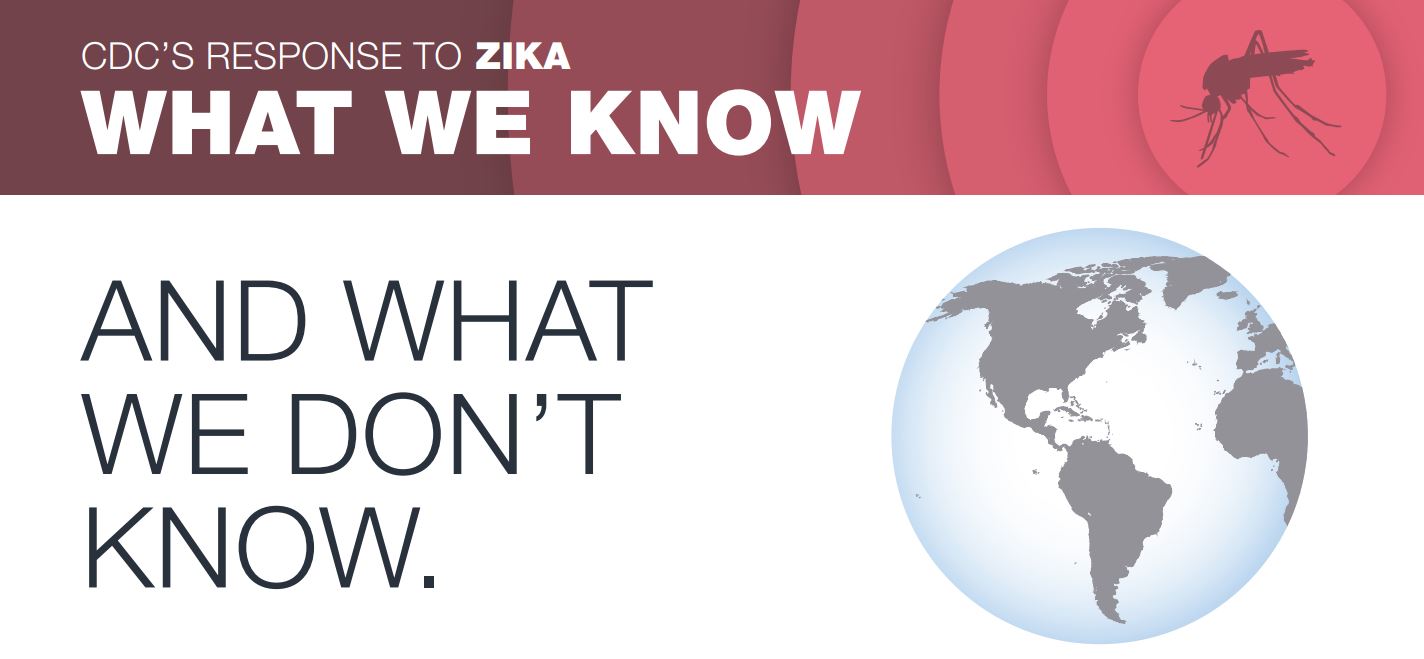Zika is a virus that can be
spread through mosquitoes, from mother to baby
during pregnancy, or sex with an infected partner. Zika-infected
mosquitoes are not here in Los Angeles County, but travelers
to Zika-affected countries should know how to
protect themselves and their families.
| Anyone can get
Zika |
| Most people with
Zika do not show symptoms |
| If you or your
partner is pregnant, use protection |
Anyone can get Zika
You can get Zika from a mosquito bite if you
travel to an area with Zika.
When you return from
your travels, you can possibly give Zika to a
mosquito around your home. If you are infected with Zika, a
non-infected mosquito can get Zika from biting you!
Zika is primarily transmitted
through the bite of an infected Aedes species
mosquito, the same mosquitoes that spread dengue and
chikungunya.
Zika can also be passed through
unprotected sex from a person who has Zika to his or
her sex partner(s). A pregnant woman can spread the Zika virus to her fetus during any trimester of
pregnancy or even around the time of birth.
 https://www.cdc.gov/zika/pdfs/zika-what-we-know-infographic.pdf
https://www.cdc.gov/zika/pdfs/zika-what-we-know-infographic.pdf
Find out more information on
how to protect yourself
from mosquitoes.
If you or your partner is
pregnant,
do not travel to
areas with Zika
Zika
infection
during
pregnancy
has been
linked
to birth
defects.
Pregnant
women should
not
travel
to areas
with
active Zika
transmission, including Mexico and Central and
South America.
 If
you or your partner wants to get
pregnant,
take steps to reduce
risk of Zika
during pregnancy.
If
you or your partner wants to get
pregnant,
take steps to reduce
risk of Zika
during pregnancy.
- Avoid traveling to areas
with Zika.
- If you have traveled to
an area with Zika, follow the
3-6-8 rule.
- Use a condom or abstain
from sex.
Women
and their partners who
do not want to get
pregnant should consider
using an
effective
method of birth control.
Much is
still
unknown
about
Zika
Virus.
There is
no known
treatment
for
Zika, no
vaccine
has been
created,
and many
of the
effects
of the
virus
are
unknown.
Prevention
for
adults
and
children
is key
to
reduce
the
possible
effects
of the
virus.
Find out more information on
protecting your
pregnancy.
Most people with Zika do not show
symptoms

Source:
https://www.cdc.gov/zika/symptoms/symptoms.html
Common symptoms of Zika include:
- Mild
fever –
less
than
38.5°C
or
101.3°F
- Headache
–
continuous
pain in
the head
- Rash –
looks
like red
bumps on
a flat,
red
patch of
skin
- Conjunctivitis
– red
eyes
with
redness
in the
white of
the eyes
- Joint
pain –
often
occurs
in the
small
joints
of hands
and feet
- Muscle
pain –
soreness
or
aching
in
muscles
- Pain
behind
the eyes
- Nausea
or
vomiting
These symptoms usually last for
several days to a week. If you think you may have
Zika, it is important to talk to your doctor. Your
doctor will determine whether or not you should get
tested for Zika.
Find out more
information on symptoms and testing for Zika.
| More Information: |
|
|
|
|
|
|
|
|
|
|
|
|
|
|
|
|
|
|
| |
| Videos: |
|
|
|
|
|
|
| |
| Apps: |
|
|
|
|
|
|
|
|
| |
| Blogs: |
|
|
|
|
| |
Zucker, J., Neu, N., Chiriboga, C.
A., Hinton, V. J., Leonardo, M.,
Sheikh, A....Thakur, K. (2017). Zika
Virus–Associated Cognitive
Impairment in Adolescent,
2016. Emerging Infectious
Diseases, 23(6), 1047-1048.
https://dx.doi.org/10.3201/eid2306.162029.